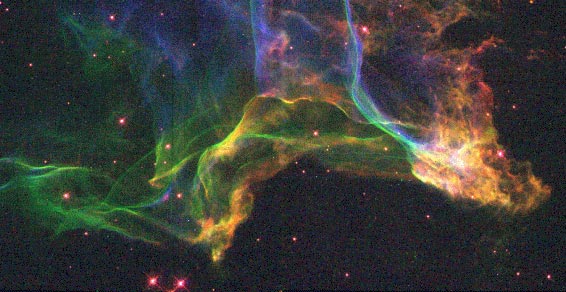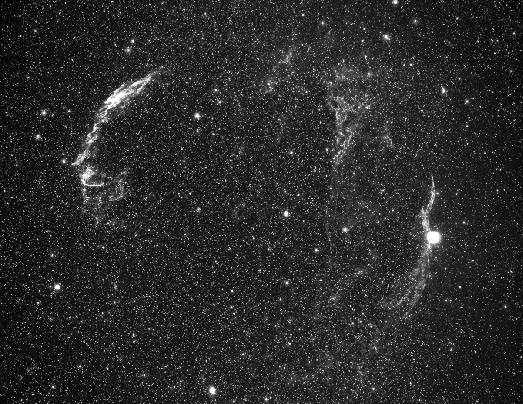Astronomy Picture of the Day
Discover the cosmos! Each day a different image or photograph of our fascinating universe is featured, along with a brief explanation written by a professional astronomer.
Posted on 01/18/2003 6:31:51 AM PST by petuniasevan
Discover the cosmos! Each day a different image or photograph of our fascinating universe is featured, along with a brief explanation written by a professional astronomer.
Explanation: Subtle and delicate in appearance, these are filaments of shocked interstellar gas -- part of the expanding blast wave from a violent stellar explosion. Recorded in November 1997 with the Wide Field and Planetary Camera 2 on board the Hubble Space Telescope, the picture is a closeup of a supernova remnant known as the Cygnus Loop. The nearly edge-on view shows a small portion of the immense shock front moving toward the top of the frame at about 170 kilometers per second while glowing in light emitted by atoms of excited hydrogen gas. Not just another pretty picture, this particular image has provided some dramatic scientific results. In 1999, researchers used it to substantially revise downward widely accepted estimates of distance and age for this classic supernova remnant. Now determined to lie only 1,440 light-years away, the Cygnus Loop is thought to have been expanding for 5 - 10 thousand years.

Here's the whole Cygnus Loop.


|
|
|
 |
FreeRepublic , LLC PO BOX 9771 FRESNO, CA 93794
|
|
|
|

Only 5 - 10 thousand years old? The Cygnus Loop is a baby!
This would be in the time range to be part of the historical record.
It would be tough to find an explicit record of this one, but it could have been noticed and been entered into the spoken tradition--mythology. The event was probably too far away to have had a significant effect aside from being visible.
Disclaimer: Opinions posted on Free Republic are those of the individual posters and do not necessarily represent the opinion of Free Republic or its management. All materials posted herein are protected by copyright law and the exemption for fair use of copyrighted works.